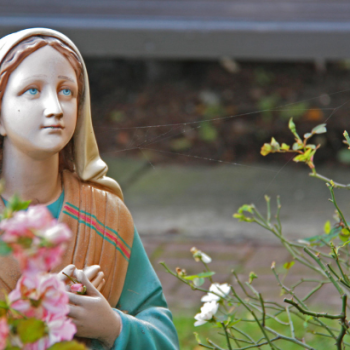Lectionary Reflections
Isaiah 40:1-11
Second Sunday in Advent
December 7, 2014
Right up there with Psalm 23 and the first verse of Genesis, Isaiah 40 may be the most-heard piece of the Hebrew Bible. After all, it rolls around each and every Advent, either week one or two, and G. F. Handel made it immortal in western ears with the wonderful recitative and aria for tenor at the beginning of his ubiquitous "Messiah." And just like that psalm, which everyone appears to know whether they go to church or not, I wonder at its popularity. Here is an example, quite unlike the psalm's notoriety, where ancient context is all. A careful look at that context offers a clue to why these words sound so striking, so magnificent to our aching souls.
If anyone dares to read straight through the previous thirty-nine chapters of the prophetic collection of Isaianic reflections that we have come to call I-Isaiah or 8th-century Isaiah, Isaiah 40 comes as a decided shock. Eighth-century Isaiah majors in prophetic assault, lambasting Israel for any number of appalling sins, centered mainly around their complete refusal to care for the poor, the widow, the stranger, the foreigner, and the orphan. These needy ones were common fixtures of Israelite life, especially during the horrors of the northern kingdom of Israel during their 200-year existence from 922 B.C.E. to 722 B.C.E. (see Amos and Hosea), matched by the inequalities and generally oppressive kingdom of the south, Judah, especially after the death of Hezekiah late in the 8th century and the death of Josiah late in the 7th (see Isaiah, Micah, Jeremiah). Reading 8th-century Isaiah is to take a bath in religious condemnation from prophetic people who knew that YHWH was furious with the chosen ones for their continual and unfailing inabilities to follow the divine will and way.
Like a bolt from the blue comes Isaiah 40, and though we now know certainly that we are hearing a different writer — this is a 6th-century Isaiah — nevertheless to hear his opening words, "Comfort, comfort my people, says your God" can only sound as balm to the spirit that has suffered the witheringly unrelenting scorn of prophetic wrath. For we Christians, the words have been etched in our minds as finally Christian ones, announcing the coming of the child, Jesus, and setting that coming forever as a final and complete comfort for us.
But if we can lay all that hermeneutic aside for a time, and attempt to hear the words as weary Israelite exiles would hear them, they may speak a more potent language to us 21st-century ones who long for comfort in a sea of fear and terror. In many ways, we are much more like 6th-century B.C.E. exiles in Babylon than we are like 1st-century C.E. Jews in the backwaters of the Roman Empire. I grant readily that I would not wish to be a Jew in such a time as that, but I would far less wish to be an exile in Babylon, far from home and hope, lost in the vast precincts of a great city.
Here is why. I think we are in fact exiles from our homes and hope. Our home is in God, who calls us to love our neighbor, to care for the poor, to serve the very least of these; all that was and is the call of Judaism to its adherents long before it was a call to Christians. Our hope is in the call and presence of that God, not in our GNP, our stock portfolios, our well-accoutered selves. We are in exile in more ways than we can enumerate! Hence our enormous need for comfort from the One who can give real comfort. Instead of the blast of divine anger and frustration, and demand, we hear from YHWH a word of comfort. It is a warm spring shower of cleansing hope, a sweet rain of present rich possibilities, a downy snow of delightful feasibility. The entire opening section falls on our eager ears like an "elixir of love," but unlike Dr. Dulcamara's elixir in Donizetti's opera, it is real and it can work to heal us of our fear and terror. Just listen!
Comfort, comfort my people, says your God.
Speak to the heart of Jerusalem,
preach to it!
Its time of hard service is finished;
its iniquity has been paid.
It has received from YHWH's hand
double for all its sins!
Here is as clear a statement of the grace of God as one is ever likely to hear. The Hebrew chesed is nearly defined by Isaiah 40:1-2. The unbreakable love of YHWH can best be found when it shows up in our exiles, when we have beaten ourselves up for our unwillingness again and again to be the children of God, when we have imagined that the jig is finally up for all of us. This is the message that we preachers are called to proclaim over and over, not just at Advent, but throughout the homiletical year.
And yet we do not. Why? Because most of us, especially we progressive types, are afraid that if we do announce the free and absolute word of grace, we will be letting our people off the hook, that they will be glad of their freedom, and so happy that they are loved by God that they will not do anything in response. Jump in the pool; have another martini; God loves me just as I am, and ain't that just the berries! No! It is of course true that that old gospel hymn is known as "Just as I am," but the entire first line adds the clause "without one plea." We are in exile, and that exile is to a great extent of our own making. We have not loved our neighbors; we have not heard the cry of the needy. Yet, we are still comforted by God/YHWH in order that we may do those things.





